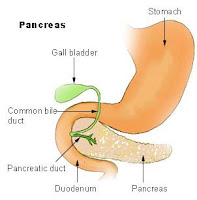 |
| Gall Bladder Stones are Fairly Common |
As per a report published in the Israel Medical Association Journal gallstone disease is considered to be one of the most costly and the most common digestive system disorder in the United States. Approximately 0.7 million cholecystectomies are conducted annually with over 1 million Americans hospitalized for the condition on annual basis. Unfortunately, very few are aware of the benefits of alternative medical system like homeopathy in the management of gall stones. A multidisciplinary approach comprising of correct dietary practices and homeopathy can help in the management of gallstones naturally and avert the need for surgical interventions.
What are gall stones?
Gall stones are lumps of solid matter found in the gal bladder.
They arise, when there is an imbalance among the bile components (bile salts, cholesterol, bilirubin, fatty acids, phospholipids, water, electrolytes, and other substances)
Gall stones causes: Symptoms of Gall Stones
Some of the common causes associated with development of gall stones include,
Some of the common causes associated with development of gall stones include,
- The principal cause, responsible for the development of gall stones, is, consuming a diet that is low in fibre.
- A high intake of refined carbohydrates and transfats particularly, white sugar is a risk factor for gall stones.
- Women are predisposed to the formation of gall stones. This is because of, either increased cholesterol synthesis or suppression of bile acids by estrogens. Pregnancy, use of oral contraceptives, or other causes that raise the estrogen level, greatly increase the chances of gall stone formation. Women using Hormone replacement therapy are at a significantly higher risk of gallstones.
- Obesity and overweight individuals are at a significantly higher risk of developing gall bladder stones.
- Constipation and inadequate bowel movement is also responsible for gall bladder stones.
An ultrasound examination provides definitive diagnosis of gall stones.
Diet for Gall Stones: Treating Gall Bladder Stones Naturally with Diet
Here are some dietary recommondations that can help in prevention and management of Gallstones - Step up your intake of fibre-rich foods, such as, – whole cereals, fruits, and vegetables.
- Reduce the consumption of saturated fats, refined carbohydrates, white sugar, cholesterol, animal protein, and fried foods.
- Your water intake ought to be about 3 to 3 and ½ liters per day, to maintain proper water content of the bile.
- Certain food allergies also cause gall stones. The only solution for this is to embark on to an elimination diet, where by you can ascertain the offending food and steadily avoid it. Stay away from coffee, eggs, pork, poultry, milk, corn, beans, and nuts, they trigger gall stone pain.
- Importantly, animal proteins such as casein from milk and its products, increase gall stone formation, while vegetable proteins like soy have a preventive and curative effective on gall bladder stones.
 |
| Homeopathy is effective in treating Gall Bladder Stones |
- Bryonia: Bryonia treats heaviness and pressure-symptoms in the abdomen, associated with gall bladder stones effectively. The medication is also effective in the treatment of vomitting associated after eating. Bryonia is considered to be beneficial in the management of soreness, tenderness and crampy pains in the abdomen. Further, the medication checks constipation and regularizes bowel movement, thus eliminating the contributing and triggering factor of gall stones.
- Lycopodium: Lycopodium works well in patients who complain of gassy stomach, bloating and fullness of the abdomen, along with heaviness and pain related to gall stones. Lycopodium can help treat indigestion effectively. The characterstic feature for the prescription of the drug include pain begining in right lower abdomen and moving to the left side.



No comments:
Post a Comment